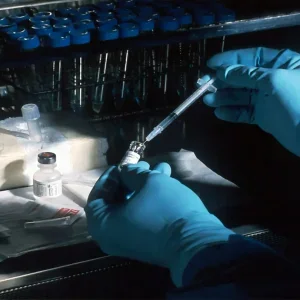
Eli Lilly and Company (NYSE: LLY) announced a collaboration with OpenAI that will allow Lilly to leverage OpenAI’s generative AI to invent novel antimicrobials to treat drug-resistant pathogens. Antimicrobial resistance (AMR) is one of the top public health and development threats across the global health landscape.
“Our collaboration with OpenAI represents a groundbreaking step forward in the fight against the growing but overlooked threat of antimicrobial resistance,” said Diogo Rau, executive vice president and chief information and digital officer at Lilly. “Generative AI opens a new opportunity to accelerate the discovery of novel antimicrobials and the development of custom, purpose-built technologies in the battle against drug-resistant pathogens. This partnership underscores our commitment to addressing significant health challenges experienced by people around the world.”
AMR affects countries in all regions and at all income levels and is exacerbated by poverty and inequality, particularly in low- and middle-income countries, which results in the greatest impact and risk. The misuse and overuse of antimicrobials in humans, animals and plants are the main drivers in the development of drug-resistant pathogens, magnifying this threat to global health.
“We’re excited to work with Lilly to find new ways to treat microbial infections,” said Brad Lightcap, chief operating officer at OpenAI. “Advanced AI has the potential to deliver innovative breakthroughs in pharma, and we’re committed to working together with industry leaders to deliver tangible benefits for patients.”
This collaboration with OpenAI supports Lilly’s earlier commitment to fighting drug-resistant pathogens through its Social Impact Venture Capital Portfolio. In 2020, the portfolio committed $100 million to the AMR Action Fund, aiming to provide patients with two to four new antibiotics by 2030 and contribute the next line of defense against multi-drug-resistant pathogens. In April 2023, the AMR Action Fund announced its latest investments in biotech companies targeting a range of infections.






